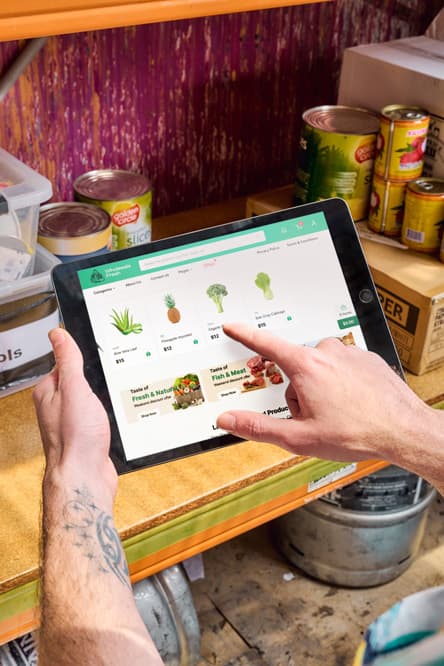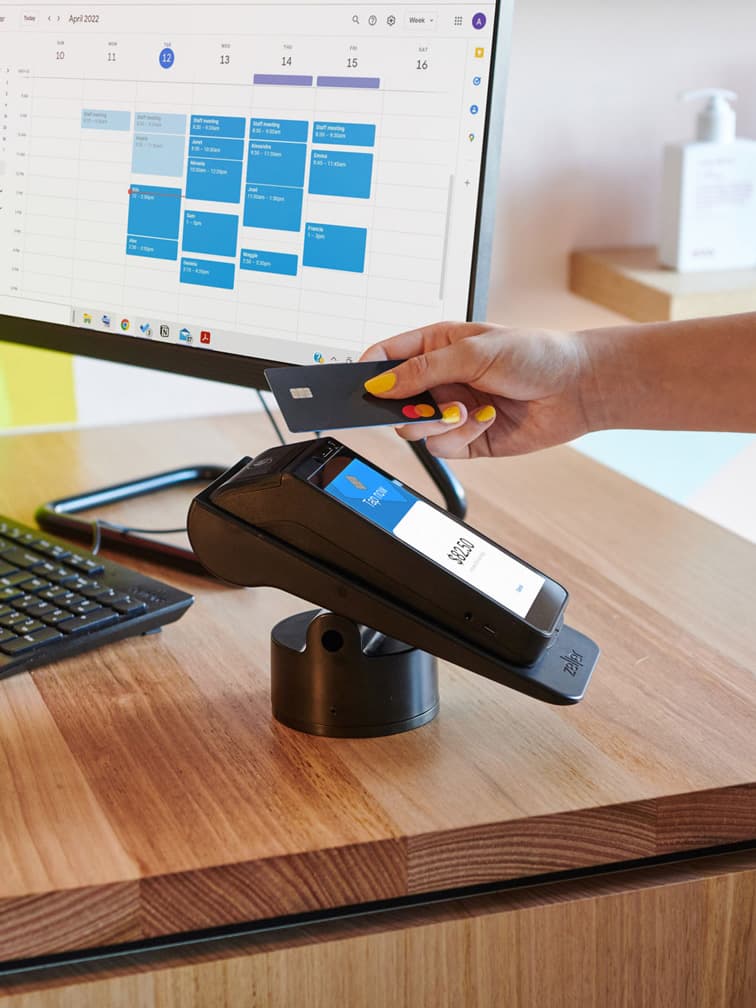
- Business Growth & Optimisation
8 Tax Deductions Retailers Should Know About
Keep more money in your retail business by learning where you can reduce tax.
Running a retail business comes with many expenses. There are the initial costs of starting a shop — such as buying or renting equipment and obtaining necessary licenses — as well as ongoing costs, including staff salaries, inventory, rent or mortgage payments, and much more.
Bringing in a profit after all of these expenses can feel nearly impossible at times. However, familiarising yourself with all of the tax deductions potentially available to you will help to keep as much money as possible in your business, while complying with tax law.
Here are eight categories of retail tax deductions you should be aware of.
1. Product purchases.
Everything sold in your store is tax deductible as a cost-of-sale. These products need to be purchased from somewhere, and the cost of stocking a store can be significant.
Whether you buy the products from a distributor as they are, or purchase the materials to make the products yourself, the purchases are tax deductible. Associated costs, such as packing and delivery costs, are also deductible.
Make sure to also write off any lost or damaged stock in order to claim a tax deduction.
2. Advertising and marketing costs.
Advertising or marketing activities you undertake to publicise your retail store and sell stock are generally tax deductible, whether that’s social media ads, billboards, flyers, or another form of advertising that connects with your target market. Even business cards are tax deductible.
If you’re considering opening a retail store, or growing your existing retail store, it’s also worth noting that the cost of hiring a marketing consultant is also tax deductible.
One commonly missed deduction is the cost of advertising vacancies. Many retailers will have accumulated costs for finding and hiring new employees post-lockdown — these can be claimed as a deduction.
3. Business insurance.
Business insurance is an essential expense for many businesses. However, there are many different types of insurance. For example, general liability insurance covers some of the costs a business may face in fighting a lawsuit, whereas loss of income insurance protects a business when an unexpected event or tragedy forces a business to close its doors and lose out on profits. Visit the Australian Government website to learn more about the different types of business insurance and what they cover.
Whether or not your business insurance expense is tax deductible will depend on your individual situation. As a general rule, retail business owners can claim a deduction for most operating expenses. Insurance premiums, including fire, burglary, accident or disability, professional indemnity, public risk, motor vehicle, loss of profits, or workers’ compensation are included in the definition of operating expenses. Just make sure the insurance policy is owned by the entity responsible for paying the expenses (i.e. you or your business).
4. Property costs.
The rent you pay for the store itself is tax deductible. If you own the property the store operates from, the mortgage is a tax deduction — as is the land tax. Water, electricity and rates are also tax deductible expenses.
For retailers operating a solely online retail store, it’s worthwhile doing the maths to work out which of your home bills contain a portion of tax deductible expenses. Occupancy expenses, running expenses, as well as expenses involved in using your car to travel for business purposes — such as sourcing new stock — are all tax deductible.
5. Capital expenditures.
A capital expenditure is something that improves existing business assets or overall business operations, and for that reason is usually tax deductible. Capital expenditures for retail stores can include:
cash registers
store fittings and fixtures
in-store security systems
accounting software
and more.
The temporary full expensing scheme allows business with a turnover of less than $5 billion to immediately deduct the business portion of the cost of eligible depreciating assets. Those assets need to be first held, used or installed ready for use by 30 June 2023.
6. Staff salaries (including superannuation).
Retailers need staff to cover the floor, serve customers, process new stock arrivals, arrange merchandise and take inventory. The cost of staff can be considerable, especially if you require more senior employees such as floor managers and supervisors. Salaries should be competitive — otherwise, potential candidates will likely choose to work elsewhere, and you may find yourself spending time regularly hiring and training new staff. Luckily, staff wages are tax deductible.
As an employer, you are also required to pay any workers earning at least $450 per calendar month a contribution to their superannuation fund. These super contributions are also tax deductible. Sole traders can even claim a deduction for their own super contributions, through their personal tax return.
It’s also important to note that the 2021/22 Federal Budget contained a significant change to superannuation.
On 1 July, the super guarantee will increase by 0.5 per cent.
It will continue increasing by 0.5 per cent until it reaches 12 per cent, in 2025.
It's important to note that the, according to the ATO, all JobKeeper payments are treated as ordinary income and should be declared as such. Where wages are paid on top of government payments, the normal rules for deductibility apply .
7. Fringe benefits.
Providing fringe benefits is one way some businesses attract and retain quality employees.
A fringe benefit is a perk offered to a person specifically because they are a valued employee. These perks provide an additional incentive to work for a particular employer. Fringe benefits can be anything from insurance bundles to tuition reimbursement, or a parking space — which is generally highly valued by workers.
The cost of providing fringe benefits is generally tax deductible, so businesses can leverage this opportunity to attract and keep staff. If, like many Australian merchants, you are struggling to find and retain staff since reopening doors — keep this in mind for the next financial year.
8. Tax expenses.
There are often costs associated with lodging taxes, including the price of hiring an accountant or bookkeeper to keep track of cash flow throughout the year, or working with a tax agent to lodge the necessary paperwork. Having a Business Activity Statement prepared is also tax deductible, as are the costs of complying with an ATO tax audit and objecting to a tax assessment you think is incorrect.
Bonus tax deductions for retailers.
Considering upgrading your business' tech tools? If you've noticed inefficiencies in your tech stack, now's the time to make changes. The government's Small Business Technology Investment Boost enables you to claim an additional 20 per cent deduction for the cost of expenses and depreciating assets up to a maximum of $100,000 per annum.
If your EFTPOS terminal frequently drops out, for example, it might be time to upgrade to a machine that supports both Wi-Fi and 4G connectivity. Zeller Terminal protects against internet outages by offering the ability to connect to Telstra's 3G and 4G network via Zeller Sim Card, so no matter where business takes you — you can accept payments from customers.

Accelerate your retail cashflow
Learn how Zeller can help grow your business and accelerate your cash flow with fast, secure payment solutions.
There are also new bonus deductions to help you train new employees and upskill existing staff. For every $100 you spend, you can claim a $120 tax deduction through the Skills and Training Boost.
Both of these new measures were announced in the 2022/23 Federal Budget.
Tips for retail workers.
We’ve gone over some of the expenses retail business owners can claim as tax deductions to save money when tax time rolls around — but what can employees of retail stores claim?
A retail employer should inform their employees about all of the deductions retail workers can claim on their income tax returns. Below are some expenses that often apply to retail workers.
Uniforms: If a retail worker has to purchase a job-specific uniform for work, that is considered a business expense, and it is often tax deductible. Clothes bought to match a dress code, such as khaki pants and a polo, are not tax deductible. However, more industry-specific items like a chef’s coat, police uniform or protective gear are generally tax deductible. Learn more about the qualifications for tax-deductible clothing items.
Travel expenses: Any transportation or lodging cost that a worker incurs for their job is considered a travel expense. These expenses are often tax deductible, whether it’s paying for a parking space or a hotel room for a work conference.
Equipment: Any equipment a retail employee must purchase for their job is a business expense, and likely tax deductible. Equipment can include something as expensive as a tablet or something as affordable as a clipboard.
Educational expenses: If an employee spends money on improving their knowledge and expertise within their field of employment, the money they spend could be considered an educational expense. This can range from conferences and seminars to classes and textbooks. For example, if you run a flower store, your employees might want to take part in a floristry course.
Home office expenses: Given the nature of a retail worker’s day to day tasks, this deduction may only apply to your managers and senior staff. Any staff expected to work from home can likely include deductions for costs associated with setting up their home office. This includes internet and telephone fees that are work related, as well as the cost of equipment like a desk, monitor, keyboard and more.
Preparing your business for tax time.
The general rule of thumb is that most expenses incurred in the running of your business can be claimed as retail tax deductions — whether the costs are incurred in an effort to generate a profit, or protect the business’ assets.
The above guide is a brief overview of what both your retail business and your employees could be claiming. Make sure to consult a financial advisor or accountant to discuss your specific circumstances.
To fully prepare your business for the end of the financial year, schedule time to speak with your accountant or financial advisor. Please note this article is for educational purposes only and does not constitute advice.



